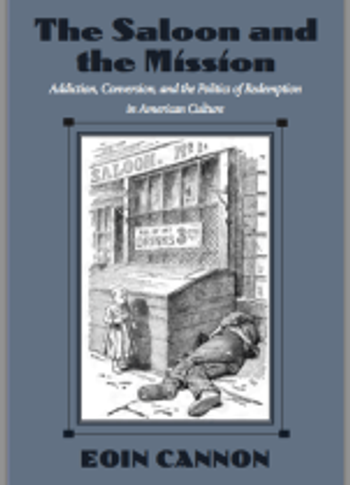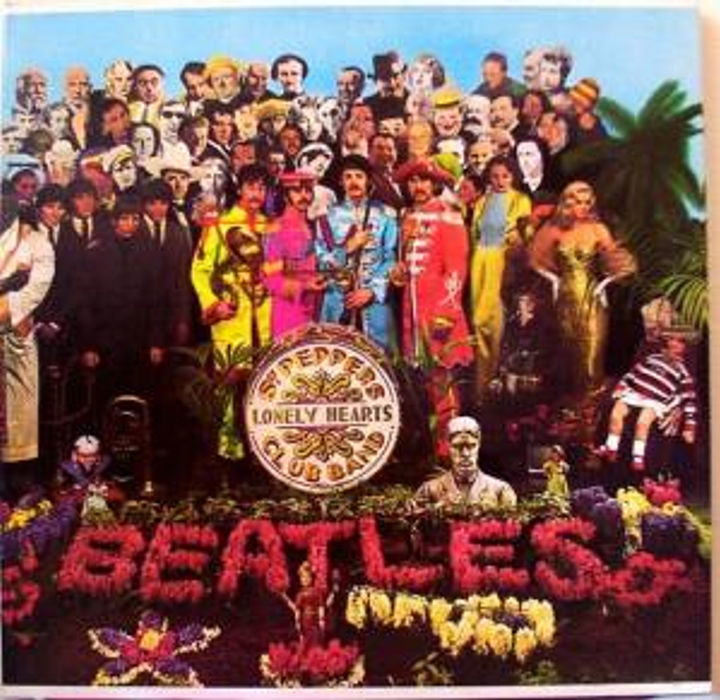Points of Continuity
- Eoin Cannon
- Feb 18, 2013
- 3 min read
Updated: Aug 30, 2023
As the new managing editor of Points, it’s high time I introduced myself. For my lateness, I could offer some familiar academic excuses, but I have one that’s better: thanks mainly to work done by Trysh Travis and others, the blog has been filled with excellent essays in the new year, led by the wonderful symposium on the fortieth anniversary of David Musto’s The American Disease that was organized by Nancy Campbell. Reading those posts as they arrived was an especially useful way for me to start my tenure. They illustrated the development of drug history in the lived, personal pathways that are usually invisible to late-comers and onlookers. In doing so they put on display one of the best and most necessary things about Points: its role as a window into – and often, as a medium f

First a bit about me. I specialize in urban literature and culture, and I teach in Harvard’s History & Literature program, an interdisciplinary undergraduate major comparable to the America

I arrived at Points as a guest blogger in 2011. I started with an account of a course I taught on addiction stories, then wrote a series of posts on ways that recovery narrative has influenced songs, films, fictions, and memoirs, and added some reflections on recovery culture itself and its discontents. Essentially I used my stint as a guest blogger to test out a wider and more contemporary range of applications for the analytical mode I was developing in my book: identifying recovery narrative’s development in, and contributions to, cultural forms and social discourses beyond the realm of addiction. Writing these posts helped me understand my own ideas better and refine how I articulated them as I completed the book. Becoming a regular reader of the blog, meanwhile, felt like coming out into the light after a professionally lonely period in which my work had taken me into realms that few literary scholars seemed to care about. I discovered overlapping networks of scholarship and of interest: the community of sorts that Trysh Travis and Joe Spillane envisioned when they started Points early in 2011. I needed, in a couple of senses, what that community had to offer. I hope the blog can play similar roles for other readers and contributors.

Community constructed.
With that in mind, what I’d like to do as managing editor is maintain the multivalent, high-quality forum Trysh Travis and Joe Spillane established, while being open to new directions suggested by the community that makes use of it. Points has been and should continue to be:
A forum where scholars new and established can propose, record, and discuss substantive ideas with much greater immediacy – both in time and in tone – than in the formal avenues of professional publication.
A site of fruitful exchange among different kinds of historians, as well as cultural critics, scholars of literature, rhetoric, and media discourse, and even psychological, medical, and biological researchers.
A place for meta-conversations about the field (and subfields) of alcohol and drug history, as exemplified by regular symposia.
In each of these roles, the blog format makes fewer formal demands and offers more flexibility than the peer-reviewed journal. It can allow for new ideas, innovative approaches, and honest questions without waiting for the gatekeeping machinery of the larger discipline to render its verdicts and slowly creak open. Additionally, writing can be good (or bad!) in a wider variety of ways: first-person, speculative, literary, reflective, provocative, etc. Recognizing the limited professional rewards for online writing, Points should by nature be a place to take chances.
Points should also be a place for scholars to engage contemporary concerns and the wider reading public that shares them. Far from chasing the elusive goal of relevance, Points offers academics an opportunity to contribute to current events discussions from their own deeply founded perspectives. I often read popular bloggers expounding on issues of drug policy and addiction science with characteristic sharpness but limited historical perspective or analytical depth.

Drug news in the making.
Personally, I would like a place to go online to read more deeply considered reflections on current affairs. I think in doing so, scholars can become more conscious of the inevitable dialog in their own work between past events and present concerns. I would like to encourage more of such commentary. I’ll post regular round-ups of breaking developments, with a standing invitation for readers to propose longer posts on any of these matters or others.
Because of my background in literary scholarship, even more than most of us I am limited by my own perspective. So please, by all means, comment or contact me with feedback and suggestions. Which of these roles do you value, and which, perhaps, do you think need greater or lesser emphasis? I look forward to continuing the conversation.
–Eoin Cannon





